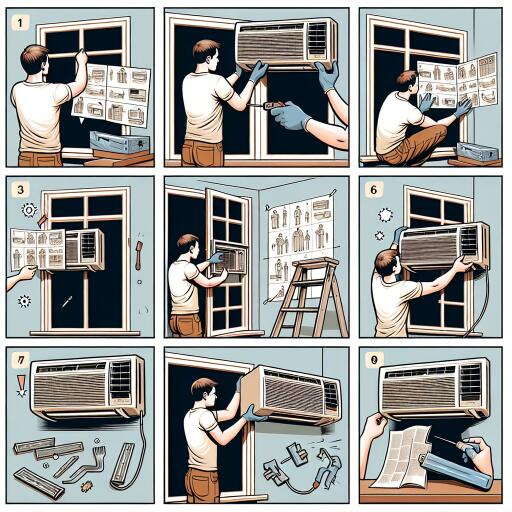How to Safely Install a Window Air Conditioning Unit
Installing a window air conditioning unit might seem straightforward, but it requires care and consideration to ensure it’s done safely and effectively. With advancements in technology, air conditioning units have become more user-friendly, lighter, and equipped with better filtration systems, making installation a task achievable by most homeowners. Here are expert tips to help you install your window AC unit without risking injury or damage to your property.
Choosing the Right Unit
Modern air conditioning units come in various shapes and sizes to accommodate different window types. The first step is choosing a unit that fits your window dimensions and room size adequately. Notably, newer models boast lighter designs and enhanced filters that last longer and are easier to clean—often requiring just a simple rinse.
Installation Steps
Michael Bayrouty, a professional in the heating and air conditioning industry, stresses the importance of not fully opening the window during installation. Instead, one should:
- Position the unit against the window sill while gradually opening the window.
- If needed, place the unit on a stable shelf or table to align it with the window before installation.
- As the window is raised enough, gently push the unit outward, ensuring it does not tip over.
- Lower the window onto the unit to lock it in place.
This process is ideally done with two people: one to hold and position the air conditioner and another to adjust the window. Quick, unattended moves can lead to the unit dropping, leading to potential damage or injury.
Ensuring Proper Drainage
It’s crucial for window units, especially those that condense significant amounts of water, to be slightly angled towards the outside. This ensures the condensed water drains out and not into your home. Installing a shelf or cabinet beneath the unit is not advised, as it could lead to damage or obstructions if the unit were to fall.
Securing the Unit
A well-installed air conditioning unit should stay in place securely thanks to the pressure of the window itself. However, for larger units exceeding 8,000 BTUs, professional installation and the addition of external stabilizers, like L brackets, are recommended to ensure the unit is safely anchored.
Professional Help for Unique Cases
Given the unique architectural quirks common in older homes, it may be beneficial to consult a professional or refer to the owner’s manual to address any special installation needs. This ensures the air conditioner is securely installed, preventing accidents or inefficiencies in cooling.
The Role of Landlords in Providing Air Conditioning
While state laws mandate landlords to ensure a habitable living environment, specific requirements for air conditioning are not explicitly stated. However, offering assistance with air conditioning installation or providing units can significantly enhance tenants’ comfort, especially during warmer months. Doug Quattrochi, a representive of a landlord association, suggests that landlords consider the real-world needs of tenants, which include adequate cooling solutions.
In summary, installing a window air conditioning unit safely requires selecting the appropriate model, careful installation to prevent accidents, and proper angling for efficient water drainage. Whether you’re a tenant seeking comfort or a homeowner aiming to beat the heat, following these guidelines can help you install your unit safely and effectively.
